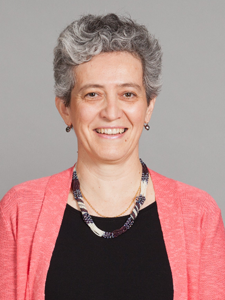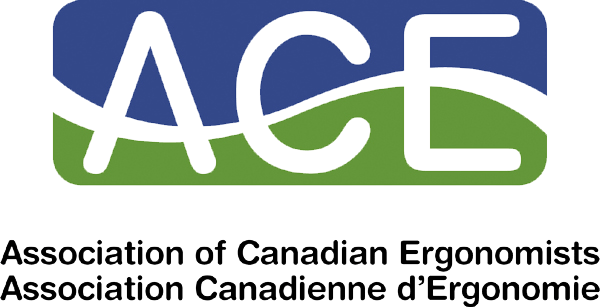Organizing for High Performance
July 31 - August 3, 2017
Conference Program
Download the Conference Proceedings
The ACE-ODAM conference will run full days (approximately 8:30am to 5pm) from July 31 to August 3, 2017. We have received over 150 proposals for sessions, workshops and roundtables. The review process is currently underway and a preliminary schedule will be available late May. In the meantime, please see below for information on the Keynotes, Workshops, Panel Discussionsand Symposia sessions that will be offered!
Download the Final Program (note a few scheduling changes have been made since the preliminary program was released)
Keynotes
We are excited to announce our keynote speakers Dr. Mark Fleming, Dr. .Pascale Carayon, Dr. Jorgen Eklund, Dr Sharon Parker!
 |
Dr. Mark Fleming Mark is an applied psychologist with over 20 years of experience in industrial health and safety management in high hazard industries including the offshore oil and gas, nuclear power, petrochemical, power generation and construction. He is dedicated to developing practical and valid tools to assist organisations to prevent harm. |
 |
Pascale Carayon, Ph.D. Dr. Carayon’s research is about analyzing, designing and improving complex work systems such as those found in health care. In the past 14 years, she has focused her research on patient safety and other healthcare quality issues such as design and implementation of health information technologies. As an industrial and systems engineer, she is particularly interested in modeling complex system interactions in healthcare processes that can lead to medical errors and other adverse outcomes for patients and healthcare professionals. The multidisciplinary SEIPS research program within the Center for Quality and Productivity Improvement at the UW-Madison allows human factors and systems engineers to collaborate with health scientists (e.g., physicians, pharmacists, nurses) in tackling healthcare problems in various care settings such as the intensive care unit, operating rooms, other hospital environments and primary care, as well problems in transitions across organizational and physical boundaries in health care. |
 |
Dr. Jorgen Eklund Jörgen Eklund has an M.Sc. in Mechanical Engineering from Chalmers, Sweden, and a Ph.D. in Industrial Ergonomics from University of Nottingham, UK. His research has dealt with design of industrial work, workplaces and production systems. He was acting professor in Quality Technology at Linköping University and is now professor in Ergonomics at the Royal Institute of Technology, KTH, in Stockholm, Sweden. His research interests include applied ergonomics and especially interactions with quality and human performance. His research also covers organizational changes and the consequences from introducing TQM and Lean Production. |
 |
Dr. Sharon Parker Sharon Parker is a Professor at the University of Western Australia with research interests in work design, proactivity, organisational change, employee development, and related topics. She is a current ARC Laureate Fellow and a previous ARC Future Fellow. She currently teaches MBA students on the topic of Leading Self and Leading Others. |
90 minute Workshops
Office Ergonomics: What might work and what might not
Applicable to all
Dr. Stephen Bao
Ergo Analyst - Review of a Leading Edge Ergonomics Too
Applicable to all
Kathy-Lynn Shaw, BSc. Kin
Ergonomics as a Design discipline: redesigning a local control room in an oil industry
Applicable to all
Dr. Daniel Braatz
Using Human Factors methods to improve the design of work environments
Applicable to all
Susan Biesbroek, M.Sc.
Learn How to Use The Ramp Tool For Risk Assessment And Risk Management of MSD Risks In Manual Handling
Intermediate
Dr. Linda Rose
Getting “hands-on” with a virtual-reality mock-up for healthcare facility design
Applicable to all
Jonas Shultz MSc EDAC
Integrating Ergonomics for Peeps Sake: Building Standards Up Their Game on Health and Well-being
Applicable to all
Lucy Hart
Ergonomics Software Solutions: Exploring your needs now to streamline your program’s future
Applicable to all
Meg Honan, MS, PT, CPE
Emerging views of resilience in safety
Intermediate
Jenny Colman, Msc., CRSP
Participatory ergonomics with health care delivery organizations: Challenges, successes, and future directions
Intermediate
Edmond Ramly
Panel Discussions
Health Systems Engineering
Dr. Edmond Ramly
The Challenges and Benefits of Calculating the Cumulative Ergonomics Risk Associated with Multiple Subtasks
Dr. Jim Potvin CCPE
Designing and Managing Healthcare Transitions
Abigail Wooldridge, MS, MEng
Designing Health Information Technology From A Human Factors Perspective
Dr. Peter Hoonakke
HTO as a systems concept within ergonomics and human factors
Dr. Johan Karltun
Integrating Human Factors into Large Scale Engineering Design Projects
Judy Village PhD, CCCPE, CPE
Challenges and emerging issues of participatory, integrated programs for worker safety, health and well-being
Suzanne Nobrega, MS
Facilitating Sustained Adaptability In Development In An Industrially Developing Work System
Dr. Patricia R. Ferrara
Symposia
Participatory ergonomics and design
Dr. Daniel Braatz
Rasmussen revisited
Dr. Patrick Waterson
ODAM and Sustainable Development
Dr. Andrew Thatcher
Methods and Tools in Human Factors for Healthcare Environment Design
Jonas Shultz, MSc EDAC
A participatory approach to Total Worker Health developed by the Center for the Promotion of Health in the New England Workplace
Robert Henning, PhD, CPE
